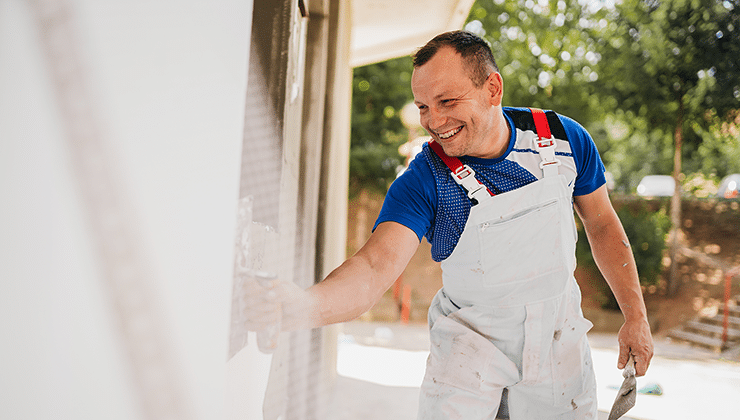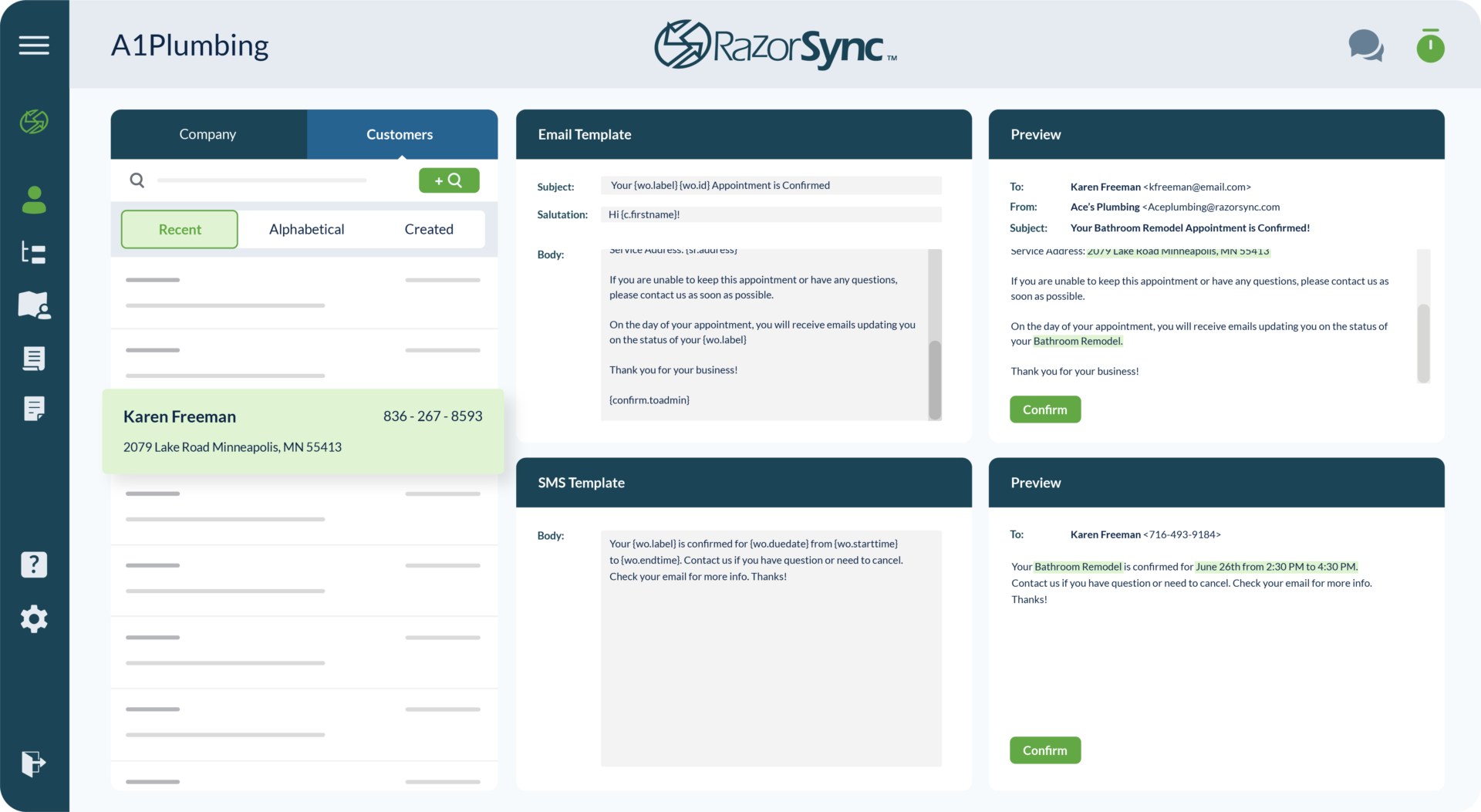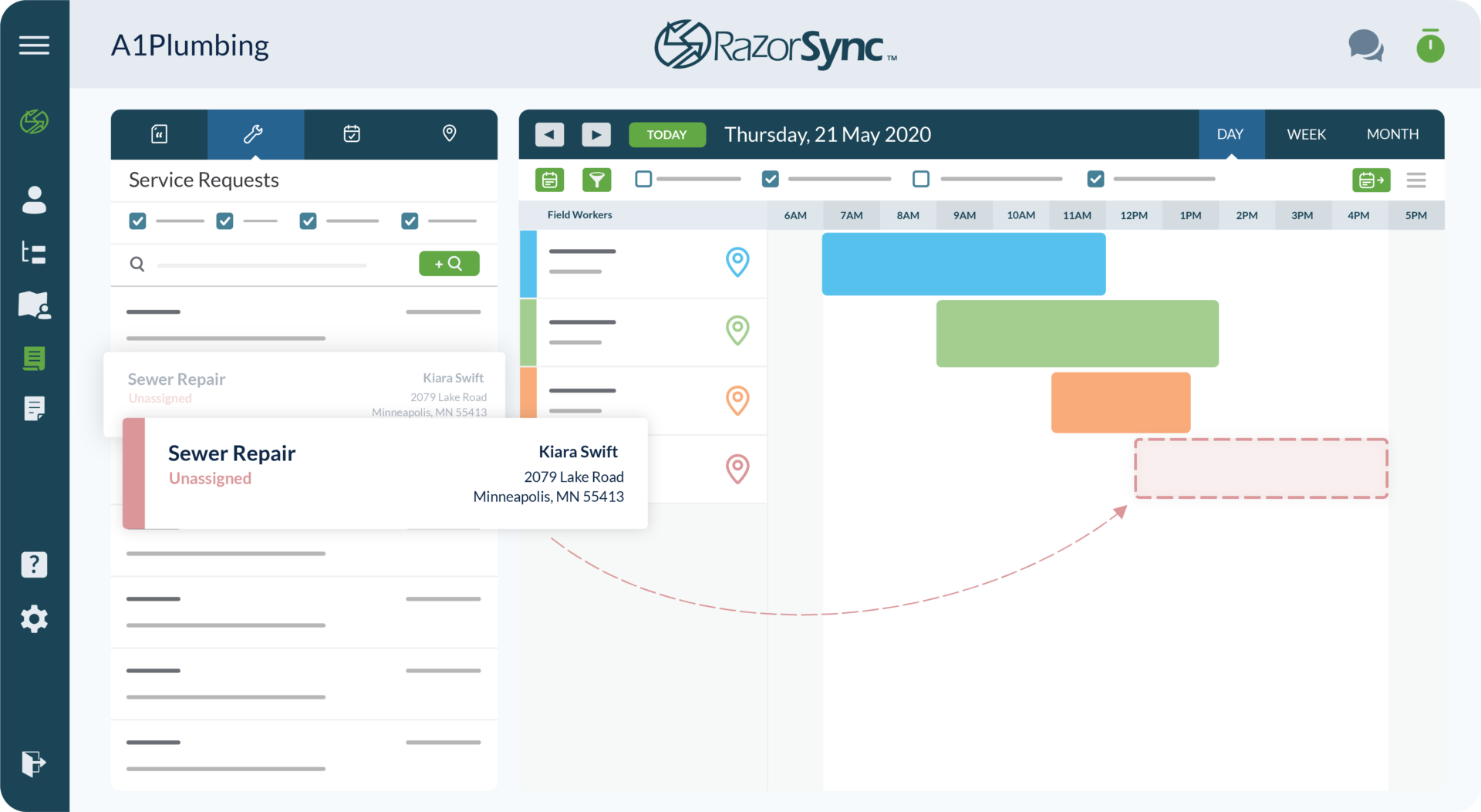How To Become A Painting Contractor
Are you a skilled construction or renovation worker with a passion for painting? If you’ve ever contemplated starting your own business as a painting contractor,...
Jun 15, 2023
# of Minutes to Read

Are you a skilled construction or renovation worker with a passion for painting? If you’ve ever contemplated starting your own business as a painting contractor, this guide is for you. Becoming a painting contractor offers an exciting opportunity to transform your expertise into a thriving enterprise.
In this comprehensive guide, we’ll walk you through the steps necessary to become a painting contractor, from gaining experience and acquiring education to obtaining licensing, establishing legal structures, and effectively marketing your services. Let’s delve into paint contracting and embark on a rewarding journey of creativity, entrepreneurship, and professional growth.
We’ve compiled a list of key steps you need to take to become a painting contractor:

Receive Your Education
While not mandatory, having a high school education provides advantages for pursuing further education and future job opportunities. After high school, you can enter the painting profession or explore apprenticeship programs. Strong math and communication skills are essential for painting contractors to calculate project costs and effectively interact with clients. Additionally, studying another language during school can be beneficial, especially if you plan to work in multilingual areas.
Here are some other key tips to follow when becoming a painting contractor.
Complete EPA’s Renovation, Repair, And Painting Program
In the United States, it became mandatory for painting contractors to obtain official certification for working with lead-based paints in 2010. The program is crucial in educating new contractors about the potential risks involved and the essential safety procedures when dealing with properties containing hazardous materials. Without proper RRP certification, contractors are unable to legally complete jobs.
Renovators become certified through an EPA-accredited training course. The course completion certificate serves as their credential following an 8-hour training course complete with 2 hours of hands-on learning. To maintain certification, renovators must complete a refresher training course before it expires. The expiration date depends on the original course date. Recertification involves a 4-hour refresher course with hands-on learning, alternating between online and hands-on every other time. Online refresher training certifies for three years, while hands-on training certifies for five years. Expired certification requires retaking the 8-hour course.
You can find an RRP training class or provider in your area here.
Research Local Licensing Requirements
Laws regarding professional contractor work vary by location, so it’s crucial to understand and comply with them from the start of your process of becoming a painting contractor. Contact your state or district’s licensing board to learn about the specific requirements for starting your business. For more detailed information on obtaining a contractor’s line in your state, visit this website. Generally, licensing requirements involve completing registration forms, passing a certification exam, and paying applicable fees. Laws regarding professional contractor work vary by location, so it’s crucial to understand and comply with them from the start of your process of becoming a painting contractor. Contact your state or district’s licensing board to learn about the specific requirements for starting your business. For more detailed information on obtaining a contractor’s line in your state, visit this website. Generally, licensing requirements involve completing registration forms, passing a certification exam, and paying applicable fees.
Learn More About Construction Codes And Regulations
Familiarizing yourself with local laws is essential for private contractors as they govern business operations, materials, equipment, and contract handling. While completing an apprenticeship or receiving on-the-job training, studying these regulations in your free time is highly recommended. Construction codes and other legal information can be accessed at your local library or through online resources such as the official website of your local government or the International Code Council.
Build Your Work Experience
Embarking on a formal apprenticeship or internship provides a valuable opportunity to collaborate closely with established painting professionals. The extensive and instructive nature of this training surpasses regular work experience, equipping you with the knowledge necessary to successfully run your own business in the future. On average, apprenticeships span multiple years and involve both hands-on work and classroom hours. To explore potential apprenticeship opportunities, reach out to painting contractors in your vicinity or conduct a quick online search.
Work Alongside A Professional Painting Contractor
Working alongside an independent professional painter or with a local painting company before you become a contractor offers numerous benefits and is crucial for individuals aspiring to become proficient in the field. You gain network opportunities, industry insights, skill development, safety training, and much more. Plus, by doing paid work, you can earn a living, improve your skills, and simultaneously prepare for launching your own business.
Learn Specialized Niches
There are various specialized niches in paint contracting, including faux finishes, mural painting, exterior/interior finishes, cabinet refinishing, and more.
Specializing in a specific niche allows you to differentiate yourself from general painting contractors. By honing your skills in a particular area, such as faux finishes, mural painting, or restoration work, you can position yourself as an expert in that niche. This differentiation can attract specific clients who require specialized services and are willing to pay a premium for your expertise. This strategic approach opens new opportunities and sets you apart from general painting contractors.
Certify And Register Your Business
Certifying and registering your painting contracting business is vital for credibility, legality, and long-term success. It involves meeting requirements, obtaining insurance, completing paperwork, and paying fees. Doing so establishes trust with clients, complies with regulations, and protects your business.
Pass The Contractor’s Certification Exam
The exam requirements and format vary by location but typically include a comprehensive written section and possibly skill demonstrations. Once you pass the exam, you’ll have 1 to 4 years to complete the business registration process. Download the exam application from the Contractors State License Board website and prepare by studying resources like the International Building Code, OSHA’s 29 CFR 1926 manual, and relevant textbooks for painting and decorating craftsmen, as recommended by test administrators.
File Necessary Business Documents
To start your contracting business, you’ll need a general business license and potentially additional licenses for restricted areas or specialized materials. A separate home business permit is necessary if you plan to use your home as your business headquarters. Business licenses are specific to the state or district where you operate and are not recognized elsewhere. When applying, designate yourself as the Responsible Managing Individual (RMI) on the application documents.
It’s also important to acquire liability insurance. To safeguard your assets in case of accidents, injuries, or property damage, it is essential to have liability insurance. Research and compare rates from different providers to find suitable coverage. Small business owners particularly benefit from good insurance as it mitigates potential significant losses. The monthly cost of insurance should typically be within a few hundred dollars. Consider obtaining completed operations or contract liability insurance to address any potential disputes over completed projects. Take the time to explore various policies until you find the one that best meets your company’s requirements.
The last step in becoming operational is to establish a business entity which typically involves completing forms with the Business Services Division of your local government. Private contractors usually file for a sole proprietorship, indicating full ownership of the company. Contact the appropriate office in your state for the required paperwork, which may also be available online.
Establish Network Connections
Once you completed all the steps required and are finally ready to start your business as a painting contractor, it is important to build network connections. Networking as a painting contractor is vital for referrals, collaborations, industry insights, access to resources, professional development, and building relationships. It expands business opportunities, enhances skills, and fosters trust within the industry.
Networking is not just about promoting your services but also about building genuine relationships and contributing to the community. By actively participating in industry events, joining professional associations, and engaging in online forums, you can establish a strong network that supports your growth as a painting contractor.
Key Takeaways
Becoming a painting contractor involves essential steps such as obtaining education, certification, and registration. Building a strong network, specializing in niches, and staying updated on regulations is crucial. Insurance coverage and compliance with licensing and business formation are vital. Establishing a business entity and managing finances contribute to long-term success.
By following these steps and improving your skills, you can thrive as a painting contractor.
RazorSync’s field service software will help you manage your business as a new painting contractor so that you can enter the field with success. Contact RazorSync for details, book a demo, or try it free for 14 days.











